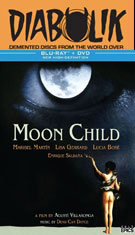
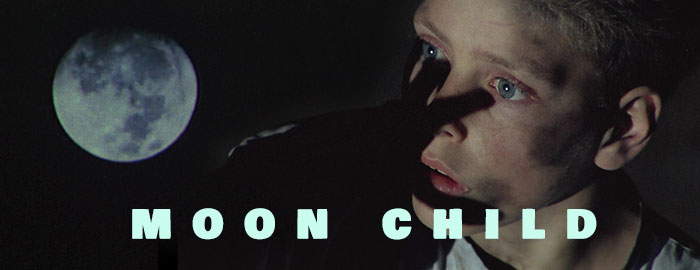
Color, 1989, 120 mins. 17 secs.
Directed by Agustí Villaronga
Starring Maribel Martín, Lisa Gerrard, Enrique Saldana, Lucia Bosé, David Sust
Cult Epics (Blu-ray & DVD) (US R0 HD/NTSC) / WS (1.66:1) (16:9)


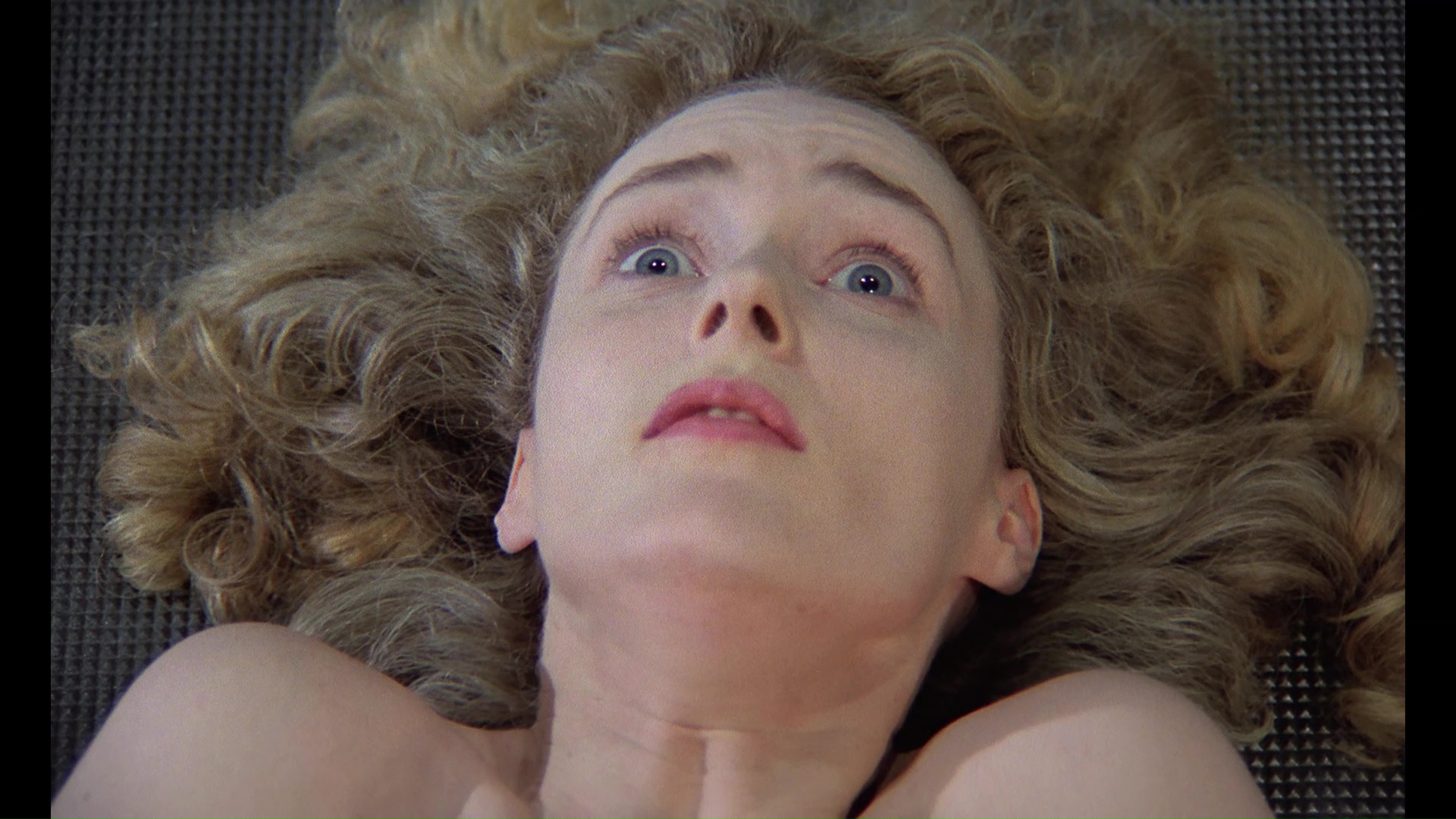 shocking even the hardiest moviegoers
shocking even the hardiest moviegoers  with his deeply impressive and disturbing debut feature, In a Glass Cage, director Agustí Villaronga shifting gears dramatically for his follow-up, El niño de la luna or Moon Child. Here he moves more into terrain akin to David Lynch by way of Alejandro Jodorowsky and Richard Stanley as we open with a hallucinatory vision of an elderly woman telling a young boy, David (Saldana), that he has the ability to use the power of the moon.
with his deeply impressive and disturbing debut feature, In a Glass Cage, director Agustí Villaronga shifting gears dramatically for his follow-up, El niño de la luna or Moon Child. Here he moves more into terrain akin to David Lynch by way of Alejandro Jodorowsky and Richard Stanley as we open with a hallucinatory vision of an elderly woman telling a young boy, David (Saldana), that he has the ability to use the power of the moon. 
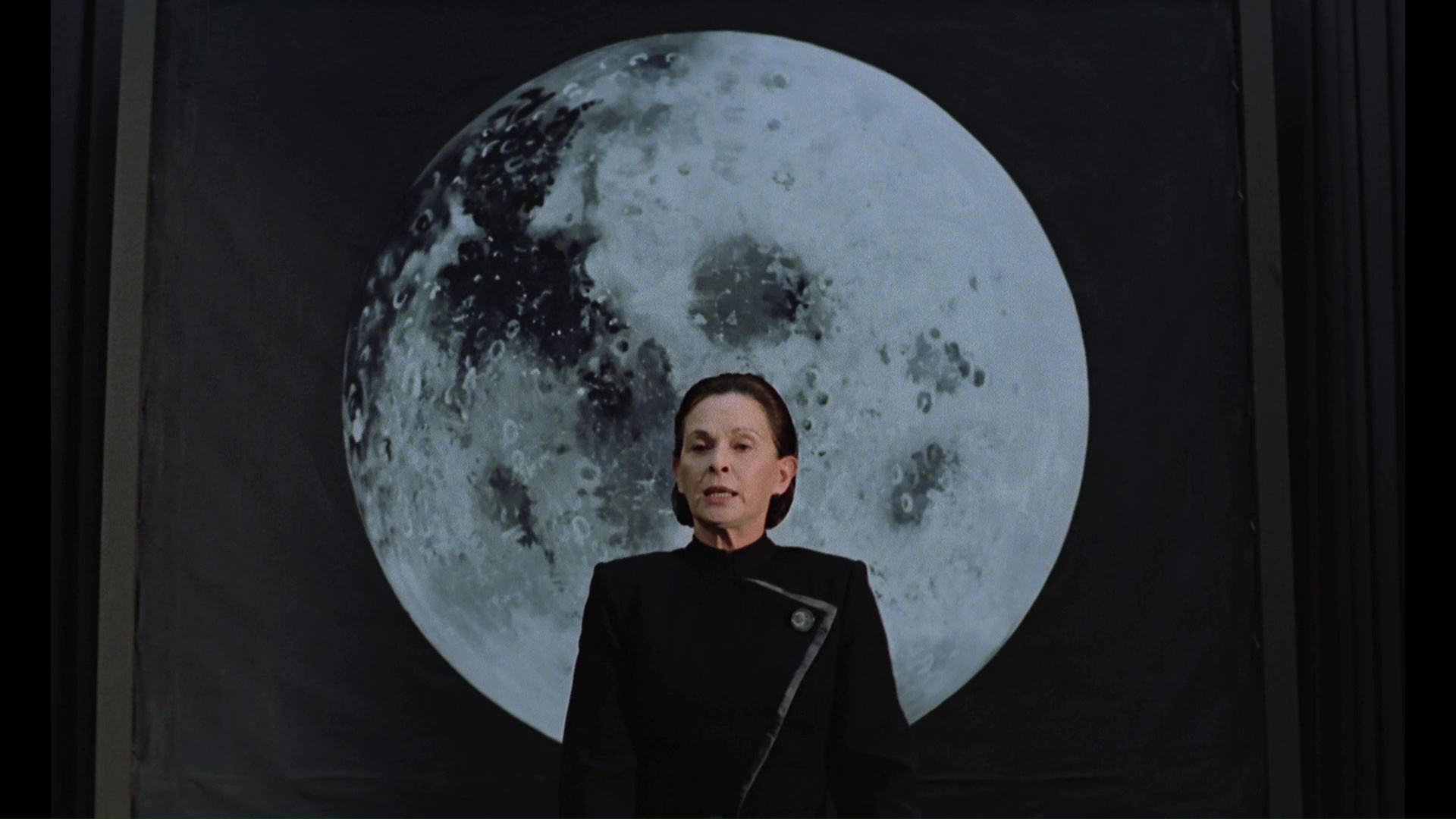 the nudity-filled mating sequence (Gerrard in particular is pretty bold), this could easily play like a peculiar family adventure film about a kid on the run from the powers that be. As usual Villaronga injects it with a unique visual style filled with icy gray, blue and beige tones, which nicely mirrors the whole moon theme of the story. It's a little disorienting seeing both Sust and Günter Meisner returning here after their leading roles in In a Glass Cage, though they play very different roles here and take a back seat to Saldana (not the world's greatest child actor, but he manages to get the idea across) and Gerrard. Surprisingly, Villaronga also got Dead Can Dance to compose the score for the film, a blend of ambient electronics and African instruments that serves as an interesting footnote to their album recorded the previous year, The Serpent's Egg.
the nudity-filled mating sequence (Gerrard in particular is pretty bold), this could easily play like a peculiar family adventure film about a kid on the run from the powers that be. As usual Villaronga injects it with a unique visual style filled with icy gray, blue and beige tones, which nicely mirrors the whole moon theme of the story. It's a little disorienting seeing both Sust and Günter Meisner returning here after their leading roles in In a Glass Cage, though they play very different roles here and take a back seat to Saldana (not the world's greatest child actor, but he manages to get the idea across) and Gerrard. Surprisingly, Villaronga also got Dead Can Dance to compose the score for the film, a blend of ambient electronics and African instruments that serves as an interesting footnote to their album recorded the previous year, The Serpent's Egg. 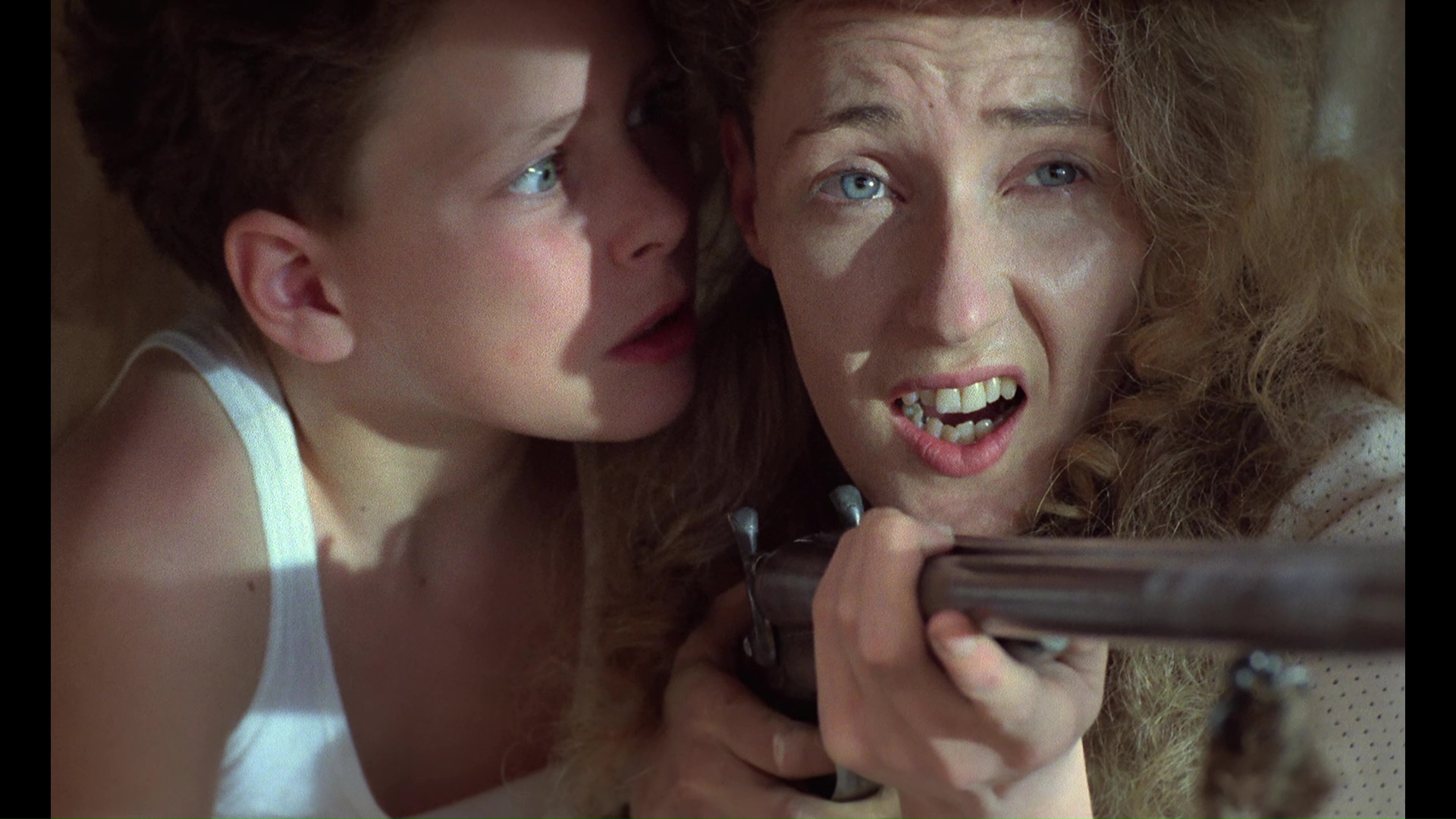 montage was evidently edited
montage was evidently edited 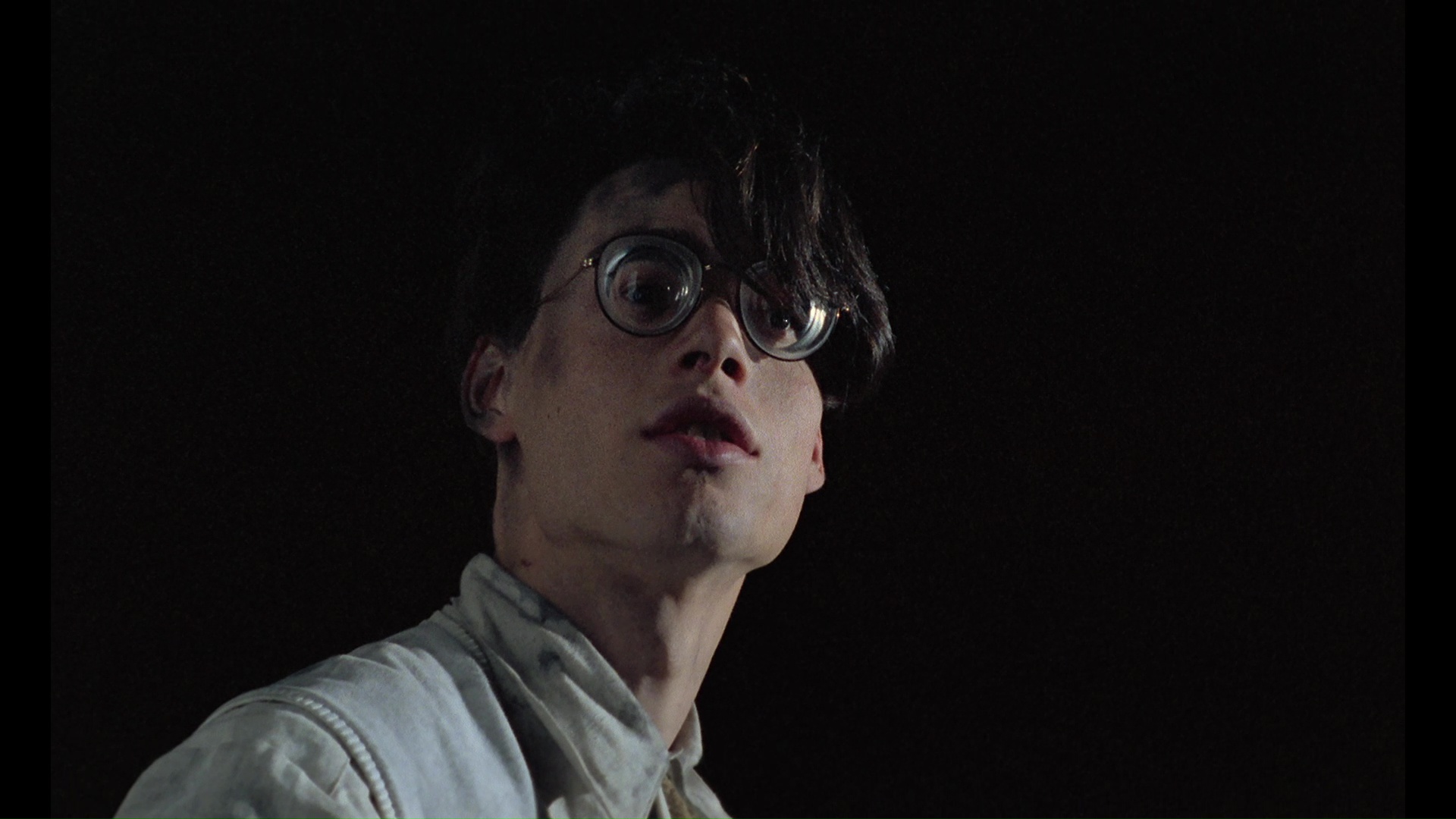 on standard definition video and given an intentionally distressed look, so don't panic; the film proper looks just fine once that passes. The film can be played with DTS-HD MA stereo or Dolby Digital 5.1 Spanish options with English subtitles; the standard stereo mix will likely be most viewer's preference as it sounds more robust and represents the original theatrical mix of the film, but try both and compare. The main extra here is a new interview with Villaronga (14m59s), who speaks in English about the influence of Aleister Crowley's book of the same name, science fiction and psychic phenomena, the involvement of Dead Can Dance, and his plans for the future after his latest film. He also has the most adorable way of saying "retired." The theatrical is included along with one for In a Glass Cage, plus a lobby card gallery and a "Score by Dead Can Dance" option that compiles all of the music from the film into one handy 52m35s reel. Since the original tapes were lost by the producers years ago (after they decided a soundtrack album wasn't necessary!), the music is pulled from the film itself complete with dialogue and sound effects. Apparently that's as good as it'll get, but hearing the music in one place is also a testament to the crucial role it plays in the film.
on standard definition video and given an intentionally distressed look, so don't panic; the film proper looks just fine once that passes. The film can be played with DTS-HD MA stereo or Dolby Digital 5.1 Spanish options with English subtitles; the standard stereo mix will likely be most viewer's preference as it sounds more robust and represents the original theatrical mix of the film, but try both and compare. The main extra here is a new interview with Villaronga (14m59s), who speaks in English about the influence of Aleister Crowley's book of the same name, science fiction and psychic phenomena, the involvement of Dead Can Dance, and his plans for the future after his latest film. He also has the most adorable way of saying "retired." The theatrical is included along with one for In a Glass Cage, plus a lobby card gallery and a "Score by Dead Can Dance" option that compiles all of the music from the film into one handy 52m35s reel. Since the original tapes were lost by the producers years ago (after they decided a soundtrack album wasn't necessary!), the music is pulled from the film itself complete with dialogue and sound effects. Apparently that's as good as it'll get, but hearing the music in one place is also a testament to the crucial role it plays in the film. ![]()